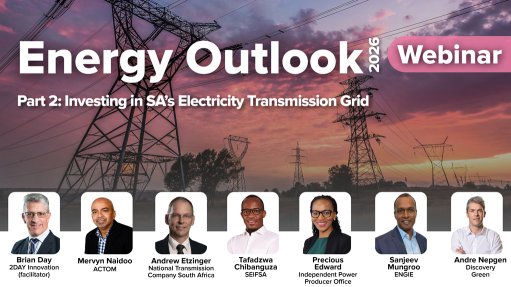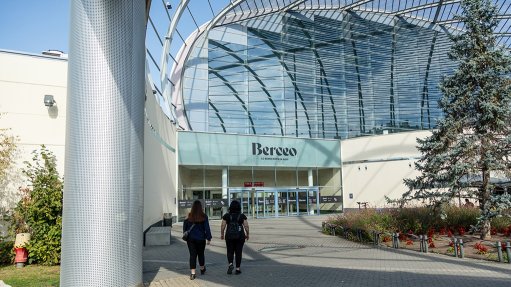South African companies spending more than most on proactive security threat mitigation – survey
Security services provider Allied Universal finds in a ‘World Security Report’ that 40% of South African chief security officers (CSOs) believe economic instability to be the biggest hazard over the next year.
This compares with 26% of South African security chiefs surveyed having cited economic instability as a concern for this year.
The report gauged input from 58 CSOs in South Africa, as part of the 2 352 CSOs surveyed globally for the report.
Alarmingly, 78% of the South African companies surveyed were targeted by a misinformation or disinformation campaign in the past 12 months – which makes South Africa among those with the highest exposure to incorrect or purely false information.
Globally, 73% of companies surveyed were targeted by a misinformation or disinformation campaign in the past 12 months.
Allied Universal finds that 47% of South African CSOs believe half or more of the threat actors targeting their business are motivated by misinformation or disinformation, compared with 41% of CSOs having this concern globally.
About 74% of South African companies said activist groups pose a growing physical security risk to facilities and executives.
South Africa also stands out globally for insider threats. Allied Universal says the misuse of company resources or data is the leading internal risk (43%) for South African companies, compared with 27% globally.
More than half (52%) of South African CSOs believed financial stress to be a factor that can contribute to intentional insider threats, followed by factors such as toxic workplace culture (50% of respondents agreed), influence of misinformation or external radicalisation (48% of respondents agreed), and fraud and policy violations (34% of respondents agreed).
This compares with 37% of global CSOs citing financial stress as a factor that can contribute to insider threats, 32% believing toxic workplace culture can contribute and 39% attributing the most insider threat risk to influence of misinformation or external radicalisation.
In respect of external threats, South African companies expect intellectual property (IP) theft to rise significantly as an external threat, with 29% of respondents expecting as such, compared with 12% of respondents that expected this rising threat in 2024.
Interestingly, South African CSOs viewed fraud as less of an external threat compared with regional counterparts, with 28% of South African respondents citing fraud as an external threat, compared with the 40% regional average.
Moreover, while South Africa recorded the lowest proportion in the region (28%) of CSOs that report an increase in threats of violence towards executives, companies are taking steps to mitigate the threat.
More than 60% of respondent companies have provided training for leaders in self-defence, awareness or de-escalation, compared with 40% of companies globally. Additionally, 64% of South African respondents are monitoring online threats, compared with 44% globally.
Almost 60% of South African respondents are enhancing security procedures such as background checks and explosives screening, compared with only 49% globally.
Fifty-five percent of South African companies surveyed are conducting risk assessments for leaders, compared with 45% of companies surveyed globally.
In respect of providing leaders with protective equipment, 45% of South African respondent companies cite doing so, compared with 34% of global companies.
South Africa also ranks higher in terms of providing leaders with personal or close security personnel, with 43% of companies providing leaders with such protection, compared with 35% of global companies surveyed.
Allied Universal finds that South African businesses are responding proactively to risks, with 74% of CSOs surveyed expecting their physical security budgets to increase in the next 12 months, compared with 66% of companies expecting this budget to increase globally.
Improving threat detection and preventing security incidents is the top priority for 45% of South African security chief officers.
South African companies also lead with implementing smart security infrastructure for buildings and public spaces, with 62% of CSOs confirming this locally, compared with 38% globally.
More than half of the companies surveyed in South Africa are using biometric access control systems, while 55% are deploying AI-powered video surveillance and analytics.
As part of the World Security Report, Allied Universal surveyed 200 global institutional investors managing more than $1-trillion in assets combined. Of these investors surveyed, 79% expect the value of a publicly listed company to drop by 20% or more after a significant internal or external security incident. Almost all of the investors believe it is important for companies to invest in physical protection for executives.
The vast majority of investors also say that physical security should have a higher strategic priority within companies.
Commenting on the South African survey results, Allied Universal subsidiary G4S Africa regional president Christo Terblanche says South Africa companies are contending with a unique mix of pressures from economic volatility and insider risk to misinformation and IP theft.
“The clear message from both security leaders and investors is that robust physical security is no longer a cost centre, it is essential for resilience, reputation and long-term value.”
Terblanche concludes that addressing crime and security challenges is most effective when all stakeholders work together, including government, industry bodies and private companies.
Article Enquiry
Email Article
Save Article
Feedback
To advertise email advertising@creamermedia.co.za or click here
Comments
Press Office
Announcements
What's On
Subscribe to improve your user experience...
Option 1 (equivalent of R125 a month):
Receive a weekly copy of Creamer Media's Engineering News & Mining Weekly magazine
(print copy for those in South Africa and e-magazine for those outside of South Africa)
Receive daily email newsletters
Access to full search results
Access archive of magazine back copies
Access to Projects in Progress
Access to ONE Research Report of your choice in PDF format
Option 2 (equivalent of R375 a month):
All benefits from Option 1
PLUS
Access to Creamer Media's Research Channel Africa for ALL Research Reports, in PDF format, on various industrial and mining sectors
including Electricity; Water; Energy Transition; Hydrogen; Roads, Rail and Ports; Coal; Gold; Platinum; Battery Metals; etc.
Already a subscriber?
Forgotten your password?
Receive weekly copy of Creamer Media's Engineering News & Mining Weekly magazine (print copy for those in South Africa and e-magazine for those outside of South Africa)
➕
Recieve daily email newsletters
➕
Access to full search results
➕
Access archive of magazine back copies
➕
Access to Projects in Progress
➕
Access to ONE Research Report of your choice in PDF format
RESEARCH CHANNEL AFRICA
R4500 (equivalent of R375 a month)
SUBSCRIBEAll benefits from Option 1
➕
Access to Creamer Media's Research Channel Africa for ALL Research Reports on various industrial and mining sectors, in PDF format, including on:
Electricity
➕
Water
➕
Energy Transition
➕
Hydrogen
➕
Roads, Rail and Ports
➕
Coal
➕
Gold
➕
Platinum
➕
Battery Metals
➕
etc.
Receive all benefits from Option 1 or Option 2 delivered to numerous people at your company
➕
Multiple User names and Passwords for simultaneous log-ins
➕
Intranet integration access to all in your organisation

















